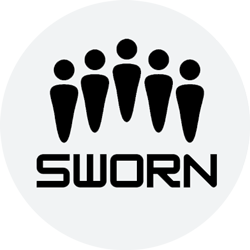The Crucial Role of Health Data Analytics in Modern Healthcare
In today’s rapidly evolving healthcare landscape, health data analytics has emerged as an indispensable tool. By harnessing cutting-edge technology, including AI and machine learning, health data analytics is driving significant improvements in patient outcomes, care management, and overall healthcare operations. Let’s delve into the importance, applications, and challenges of health data analytics, and explore some of the latest advancements in this dynamic field.
Importance of Health Data Analytics
Enhanced Patient Care
Health data analytics is transforming patient care by enabling personalized medicine. Through sophisticated data analysis, healthcare providers can identify high-risk patient groups and implement preventive measures tailored to individual needs. This data-driven approach supports evidence-based medicine, empowering healthcare professionals to make more informed decisions for better treatment outcomes.
Cost Efficiency
Automation of routine tasks through data analytics significantly enhances cost efficiency in healthcare. By reducing the administrative burden, specialists can concentrate on critical patient treatments, ultimately leading to more cost-effective healthcare services.
Population Health Management
Data analytics plays a vital role in managing population health and addressing social determinants of health. By identifying and monitoring prevalent health issues within a community, healthcare providers can develop focused strategies to improve patient outcomes and enhance overall care management.
Predictive Analytics
Predictive analytics, powered by AI and machine learning, can forecast patient outcomes and detect early signs of deterioration. This capability enables timely interventions, potentially saving lives and improving the quality of care for patients.
Applications of Health Data Analytics
Precision Medicine
Precision medicine greatly benefits from data analytics, which helps in identifying genetic markers and creating personalized treatment plans. This approach ensures that treatments are tailored to individual patient profiles, increasing the likelihood of success.
Clinical Decision Support
Advanced data analytics systems provide real-time data to support clinical decision-making. By offering actionable insights, these systems improve treatment outcomes and enhance the quality of care provided to patients.
Patient Monitoring
Analytics tools capable of real-time monitoring can alert healthcare providers to potential issues before they escalate. This proactive approach to patient monitoring ensures timely and appropriate medical intervention.
Research and Development
Data analytics facilitates medical research by providing extensive datasets for analysis. This wealth of information aids in the development of new treatments and therapies, advancing the field of medicine and improving patient care.
Challenges in Health Data Analytics
Data Privacy and Security
Ensuring the confidentiality and security of patient data is paramount. Regulations such as HIPAA and HITRUST play a critical role in safeguarding patient privacy and maintaining data security in healthcare analytics.
Data Standardization
For health data analytics to be effective, standardizing healthcare data is essential. This promotes seamless collaboration among healthcare providers, government entities, and patients, maximizing the value of information.
Data Integration
Integrating disparate datasets, including electronic health records, medical imaging, and genomic data, poses a significant challenge. Effective data integration is key to leveraging the full potential of health data analytics.
Ethical Considerations
The use of sensitive patient data raises ethical concerns, necessitating transparency and patient consent. Addressing these ethical considerations is crucial for the responsible application of health data analytics.
Novel Techniques and Advancements
Machine Learning and AI
The integration of machine learning and AI in health data analytics has led to the development of advanced predictive models and diagnostic tools. These technologies are transforming healthcare by enabling more accurate diagnoses and effective treatments.
Deep Learning Techniques
Advanced deep learning techniques, such as large language models and neural networks, are enhancing the precision and efficiency of data analytics applications in healthcare.
Big Data Analytics
Big data analytics, encompassing data mining and statistical analysis, is broadening the scope of health data analytics. These methods are particularly influential in biomedical fields, driving innovative solutions and discoveries.
Wearable Devices and IoT
The proliferation of wearable devices and IoT technologies is generating an immense amount of health data. Leveraging this data for precise health monitoring and predictive analytics holds great promise for the future of healthcare.
Conclusion
Health data analytics is revolutionizing the healthcare sector by enabling more precise diagnoses, enhancing patient outcomes, and optimizing healthcare operations. The integration of advanced analytics techniques, including machine learning and AI, is paving the way for innovative solutions and improved patient care. However, overcoming challenges related to data privacy, standardization, and ethical considerations is crucial for fully harnessing the potential of health data analytics.
Sources
- KMS Healthcare. “Healthcare Data Sets: 10 Great Data Sources.” 2024.
- National Center for Biotechnology Information (NCBI). “Data Analytics in Healthcare: A Tertiary Study.” 2022.
- Eastern Washington University. “How Data Analysis and Analytics Improves Public Health.” 2023.
- Health Information and Management Systems Society (HIMSS). “The Growing Importance of Data Analytics in Health Informatics.” 2023.
- Amazon. “Healthcare Data Analytics” by Chapman & Hall/CRC. 2023.



